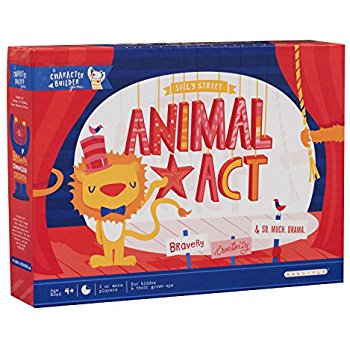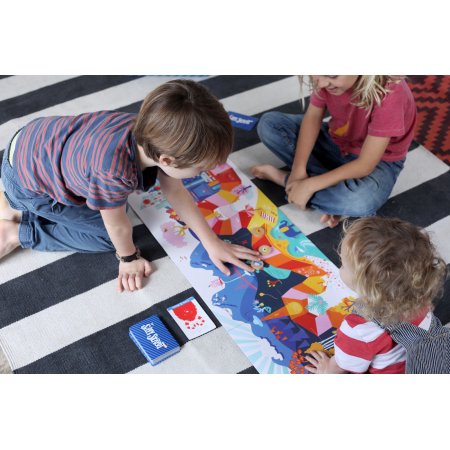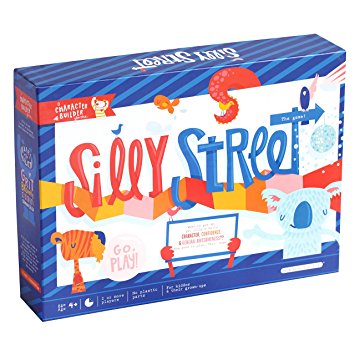Game On Fun for Everyone
These fab new games are so popular, you can find them many places toys are sold, but if you order by clicking on the links, GrandyCamp will receive a small affiliate percentage for sending you their way - Thanks for supporting GrandyCamp! Our enthusiasm for the games came all on its own, however! Also admired by Minneapolis/St. Paul Magazine.
In Animal Act, players pick a card and then act, sing, or mime what it says while the other players guess. If a player guesses correctly, the actor earns a ticket for his or her playbill. Fill your playbill first and you win. Like Silly Street, the beauty of the game is also in its ability to be played sans actual board, which means the card deck can be taken on road trips, or played in short intervals for spur-of-the-moment giggles. (What, you’ve never sung “Row, Row, Row Your Boat” in a hippopotamus voice before? There’s a first time for everything.)
Grandparents have a special opportunity to teach their grandchildren through behavior modeling. Kids don't typically expect their grandparents to hop around like a kangaroo doing karate, for instance. But, these interactions drive contagious connection. We all know that strong bonds are powerful for happiness and for emotional stability, so grandparents, go play!
Minnesota Mom designers, Christine Peck and Meghan DeRoma, hope that kids gain a better sense of themselves and gain confidence in their ability to communicate with others and to succeed when trying something new. The benefits of family and multi-generational play also aid in building bravery and adaptability.
Popular Silly Street was designed on a cabin fever day with “little hands and moving bodies” in mind, and pairs a supersized board with a deck of cards. Players pick a card and do what it says, from roaring like a lion, to inventing a song about the picture on the card, to simply finding something exciting on the board. “It’s really open ended and open to the interpretation of the child, so every time you play the game, it’s totally different because the mood and the people who are playing it are changing their interpretation of the card,” Peck explains. In a clever move, the card also states how many spaces to move after completing the activity, eliminating young children’s, ahem, “subjective” assessments of numbers determined by the more-common spinner or dice. The result? A game that shakes out the sillies, brings families closer, and builds kids’ confidence and creativity. “It brings a really joyful moment to an ordinary day,” Peck says.


